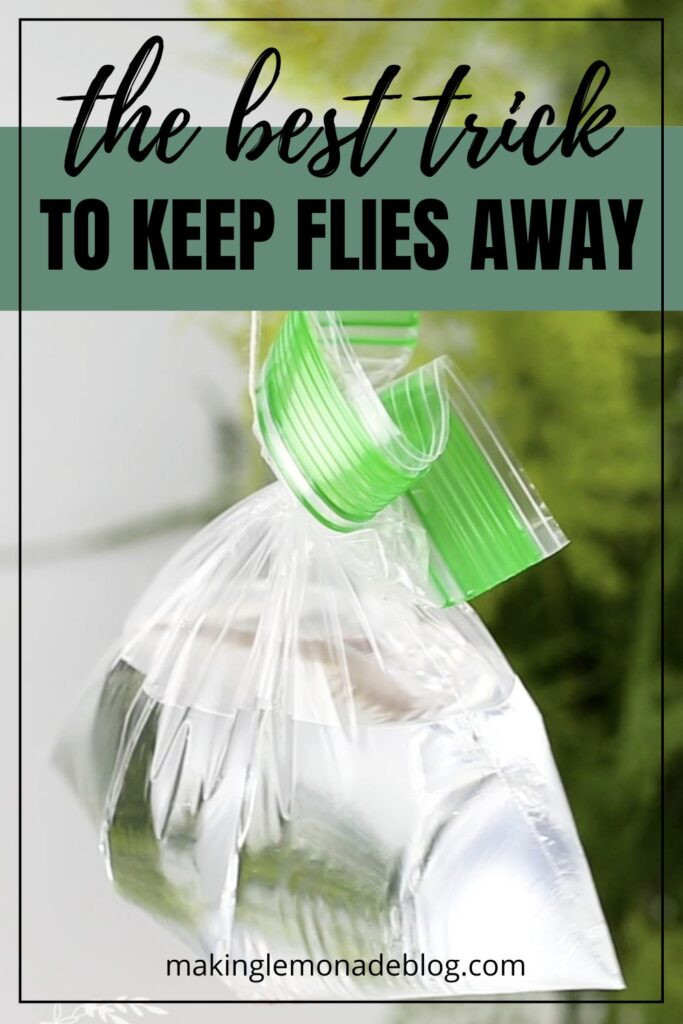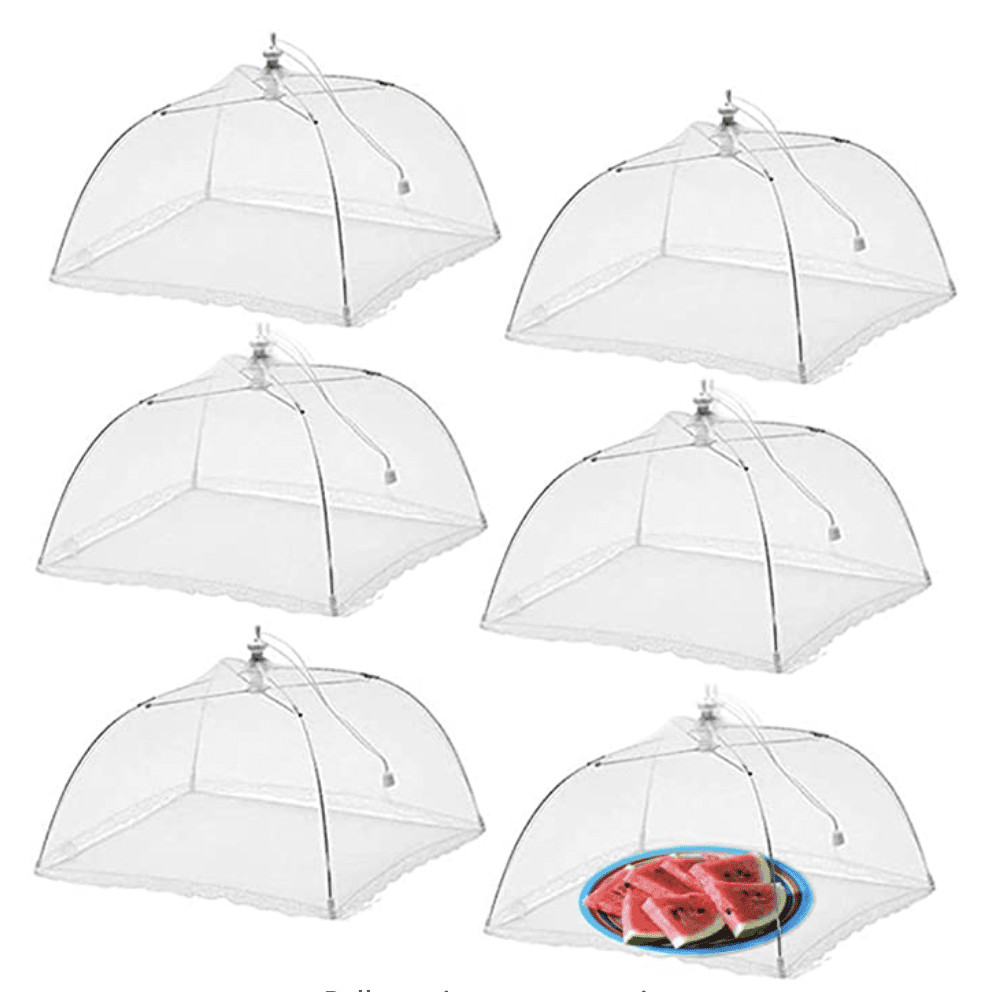Keeping flies away from your door can be a game-changer, especially if you enjoy spending time outdoors or simply want to maintain a clean and pleasant home environment. Are you tired of swatting away flies every time you open your door? At flyermedia.net, we’ll explore practical and effective methods to keep these pesky insects at bay. These methods not only improve your living space but also contribute to a healthier and more enjoyable lifestyle with natural repellents, deterrent strategies, and environmental management.
1. Understanding Why Flies Are Attracted to Your Door
Before diving into solutions, it’s essential to understand why flies are drawn to your door in the first place. What attracts flies to your door? Flies are typically attracted to odors, light, and available food sources near your entrances.
1.1. Common Attractants
What are the specific attractants that lure flies to your doorstep? Here are some of the most common culprits:
- Food Odors: Flies have an acute sense of smell and are attracted to even the faintest food odors emanating from your home.
- Garbage and Compost: Nearby garbage cans or compost bins can be breeding grounds for flies, leading them to congregate near your door.
- Pet Waste: Pet waste in the yard can also attract flies, as they feed on the organic matter.
- Light: Flies are drawn to light, especially at night. If your porch light is on, it can attract flies and other insects to your door.
- Moisture: Standing water or damp areas around your door can provide a breeding ground for flies.
1.2. The Role of Environmental Factors
Environmental factors significantly contribute to fly infestations. How do these factors play a role? Weather conditions, seasonal changes, and the general cleanliness of your surroundings can all impact the number of flies around your property.
- Weather: Warm weather accelerates the life cycle of flies, leading to a rapid increase in their population during the summer months.
- Season: Fly populations tend to peak during the warmer months and decline as temperatures drop.
- Cleanliness: Poor sanitation practices, such as not cleaning up spills or leaving food waste exposed, can create ideal conditions for flies to thrive.
 Flies buzzing around a garbage can, illustrating common attractants
Flies buzzing around a garbage can, illustrating common attractants
2. Simple DIY Methods to Keep Flies Away
Fortunately, keeping flies away doesn’t always require expensive solutions. What are some easy DIY methods that can help? Several simple and affordable methods can effectively deter flies from your door.
2.1. The Penny in Water Trick
One popular and surprisingly effective method is the penny in water trick. How does this trick work? This involves filling a clear plastic bag or glass with water and adding a few pennies.
2.1.1. How to Implement the Penny Trick
Here’s how to implement this simple yet effective fly deterrent:
- Gather Supplies: You will need a clear plastic bag or glass, water, and a few shiny pennies.
- Fill the Bag or Glass: Fill the bag or glass about ¾ full with water.
- Add Pennies: Drop 3-4 pennies into the water.
- Seal and Hang: If using a bag, seal it tightly and hang it near your door. If using a glass, place it on a stable surface near the entrance.
2.1.2. Why It Works
Why do pennies in water deter flies? While the exact mechanism isn’t scientifically proven, the prevailing theory suggests that the combination of water and pennies creates a visual distortion that confuses flies, deterring them from approaching. According to anecdotal evidence, the reflective properties of the water and the copper in the pennies create an illusion that resembles a large body of water or a predator’s eyes, scaring the flies away.
2.2. Natural Fly Repellents
Another great way to deter flies is by using natural repellents. What are some effective natural repellents? Certain plants and essential oils have properties that flies dislike.
2.2.1. Plants That Repel Flies
What plants are most effective at repelling flies? These plants can be grown in pots near your door or planted in your garden to create a natural fly barrier:
- Basil: Basil is a versatile herb that not only adds flavor to your dishes but also repels flies and mosquitoes.
- Lavender: The pleasant scent of lavender is appealing to humans but offensive to flies.
- Mint: Mint is another effective fly repellent that can be grown easily in containers.
- Rosemary: Rosemary is a fragrant herb that deters flies and other insects.
- Marigolds: Marigolds contain pyrethrum, an insecticide compound that repels a variety of pests, including flies.
2.2.2. Essential Oils for Fly Repellent
What essential oils can be used to keep flies away? Essential oils offer a concentrated and potent way to repel flies.
- Lavender Oil: Lavender oil’s strong scent is known to repel flies.
- Peppermint Oil: Peppermint oil is effective at deterring flies and other insects.
- Eucalyptus Oil: Eucalyptus oil has a strong, medicinal scent that flies avoid.
- Citronella Oil: Citronella oil is a well-known insect repellent that works against flies and mosquitoes.
To use essential oils, mix a few drops with water in a spray bottle and apply around your door area. You can also soak cotton balls in essential oil and place them in strategic locations.
 A close-up of a lavender plant, known for its fly-repelling properties
A close-up of a lavender plant, known for its fly-repelling properties
3. Maintaining a Clean Environment
One of the most effective ways to keep flies away is to maintain a clean and sanitary environment. Why is cleanliness so important? Flies are attracted to filth and decay, so reducing these attractants can significantly decrease their presence.
3.1. Proper Waste Management
How can proper waste management help control fly populations? Proper waste management is crucial in preventing fly infestations.
- Use Sealed Trash Cans: Ensure that all trash cans have tight-fitting lids to prevent odors from escaping and attracting flies.
- Regularly Empty Trash Cans: Empty trash cans frequently, especially during warmer months, to prevent the buildup of decaying matter.
- Clean Trash Cans Regularly: Wash trash cans with soap and water regularly to remove any residue that may attract flies.
3.2. Eliminating Food Sources
What steps can be taken to eliminate potential food sources for flies? Flies are opportunistic feeders, so removing potential food sources is essential.
- Clean Up Spills Immediately: Wipe up any spills of food or drink immediately to prevent flies from being attracted.
- Store Food Properly: Store food in airtight containers to prevent odors from escaping and attracting flies.
- Wash Dishes Promptly: Wash dishes promptly after meals to remove food residue.
- Keep Countertops Clean: Regularly clean countertops and other surfaces to remove crumbs and food particles.
3.3. Addressing Moisture Issues
Why is it important to address moisture issues around your door? Flies are attracted to moisture, so addressing any water accumulation can help reduce their presence.
- Repair Leaks: Fix any leaks in pipes or gutters to prevent water from pooling near your door.
- Improve Drainage: Ensure that your yard has proper drainage to prevent standing water.
- Dry Damp Areas: Dry out any damp areas around your door, such as under potted plants or in shaded corners.
4. Physical Barriers and Traps
In addition to DIY methods and cleanliness, physical barriers and traps can be effective in keeping flies away from your door. What types of barriers and traps are available? These options provide a more direct approach to managing fly populations.
4.1. Fly Screens and Curtains
How effective are fly screens and curtains? Fly screens and curtains are a simple yet effective way to prevent flies from entering your home.
- Install Fly Screens: Install fly screens on doors and windows to create a physical barrier that prevents flies from entering.
- Use Fly Curtains: Hang fly curtains, such as beaded or plastic strip curtains, in doorways to deter flies from entering.
4.2. Fly Traps
What are the different types of fly traps? Fly traps come in various designs, each with its own advantages.
- Sticky Fly Traps: Sticky fly traps are coated with an adhesive that traps flies upon contact. Hang these traps in areas where flies are prevalent.
- Light Traps: Light traps use ultraviolet light to attract flies, which are then electrocuted or trapped on a sticky surface.
- Bait Traps: Bait traps use a sweet or protein-based bait to lure flies into a container from which they cannot escape.
4.3. Electric Fly Swatters
How can electric fly swatters be used effectively? Electric fly swatters are handheld devices that deliver a small electric shock to kill flies on contact. These can be effective for quickly eliminating individual flies.
 A fly screen installed on a door, providing a physical barrier against flies
A fly screen installed on a door, providing a physical barrier against flies
5. Professional Pest Control Services
For severe fly infestations, it may be necessary to enlist the help of professional pest control services. When should you consider professional help? If you’ve tried various methods without success, or if the fly problem is overwhelming, professional pest control can provide effective solutions.
5.1. Identifying the Source of the Infestation
What can a pest control professional do to identify the source? Pest control professionals have the expertise to identify the source of the infestation and recommend appropriate treatment options. They can conduct a thorough inspection of your property to locate breeding sites and attractants.
5.2. Treatment Options
What treatment options are typically offered by pest control services? Pest control services offer a range of treatment options, including:
- Insecticides: Application of insecticides to kill flies and larvae.
- Growth Regulators: Use of growth regulators to disrupt the life cycle of flies.
- Sanitation Recommendations: Advice on improving sanitation practices to prevent future infestations.
5.3. Long-Term Prevention Strategies
What long-term prevention strategies can professionals recommend? Pest control professionals can also provide long-term prevention strategies to keep flies away from your door. This may include regular treatments, maintenance of cleanliness, and structural repairs to eliminate breeding sites.
6. The Science Behind Fly Repellents
Understanding the science behind fly repellents can help you choose the most effective methods. What scientific principles are at play? Research has shown that flies are repelled by certain scents, visual cues, and environmental conditions.
6.1. How Flies Detect Scents
How do flies use their sense of smell? Flies have highly sensitive olfactory receptors that allow them to detect odors from long distances. These receptors are located on their antennae and are tuned to detect specific chemical compounds associated with food, breeding sites, and other attractants.
6.2. Visual Deterrents
What visual cues deter flies? Flies have compound eyes that provide a wide field of vision but limited visual acuity. They are sensitive to movement and light, which is why visual deterrents like the penny in water trick and reflective surfaces can be effective.
6.3. Environmental Control
How does environmental control impact fly populations? Environmental control focuses on modifying the environment to make it less attractive to flies. This includes reducing moisture, eliminating food sources, and maintaining cleanliness.
7. Innovative Technologies in Fly Control
The field of pest control is constantly evolving, with new technologies emerging to combat fly infestations. What are some innovative technologies being developed? These advancements offer more effective and sustainable solutions.
7.1. Smart Traps
What are smart fly traps? Smart traps use sensors and data analytics to monitor fly activity and optimize trapping strategies. These traps can be remotely monitored and adjusted to maximize their effectiveness.
7.2. Biological Control Methods
What are biological control methods for fly control? Biological control methods involve using natural predators or pathogens to control fly populations. This can include introducing parasitic wasps that prey on fly larvae or using bacteria that kill flies.
7.3. Advanced Insecticides
What are the benefits of advanced insecticides? Advanced insecticides are designed to be more targeted and less toxic to non-target species. They often have longer residual activity, providing extended protection against flies.
8. Common Mistakes to Avoid
Even with the best intentions, some common mistakes can undermine your efforts to keep flies away from your door. What mistakes should you avoid? Being aware of these pitfalls can help you achieve better results.
8.1. Neglecting Sanitation
Why is neglecting sanitation a critical mistake? Neglecting sanitation is one of the biggest mistakes you can make. Even if you use repellents and traps, flies will continue to be attracted if there are food sources and breeding sites available.
8.2. Inconsistent Use of Repellents
Why is consistency important when using repellents? Repellents need to be applied consistently to be effective. If you only use them sporadically, flies will quickly return when the repellent wears off.
8.3. Ignoring Standing Water
Why should standing water be addressed promptly? Ignoring standing water can create breeding grounds for flies. Even small amounts of water, such as in potted plant saucers or clogged gutters, can support fly larvae.
9. Seasonal Fly Control Strategies
Fly control strategies should be adapted to the changing seasons. How should your approach vary throughout the year? Different seasons bring different challenges and require tailored solutions.
9.1. Spring Cleaning
Why is spring cleaning important for fly control? Spring cleaning is an opportunity to eliminate overwintering flies and breeding sites. Focus on cleaning up debris, removing standing water, and ensuring proper sanitation.
9.2. Summer Maintenance
What steps should be taken during the summer months? Summer is the peak season for fly activity. Maintain cleanliness, use repellents consistently, and empty trash cans frequently.
9.3. Fall Preparations
How can you prepare for fall to prevent fly infestations? Fall is a good time to seal up cracks and crevices that flies may use to enter your home. Clean up fallen leaves and debris that can provide breeding sites.
10. Keeping Flies Away: A Comprehensive Checklist
To help you keep flies away from your door, here’s a comprehensive checklist:
| Task | Frequency | Description |
|---|---|---|
| Empty Trash Cans | Daily/Weekly | Empty trash cans regularly, especially during warm months. |
| Clean Trash Cans | Monthly | Wash trash cans with soap and water to remove residue. |
| Clean Up Spills | Immediately | Wipe up food and drink spills promptly. |
| Store Food Properly | Daily | Store food in airtight containers. |
| Wash Dishes Promptly | Daily | Wash dishes after meals to remove food residue. |
| Address Moisture Issues | As Needed | Repair leaks and improve drainage. |
| Apply Natural Repellents | Weekly | Use essential oil sprays or place repellent plants near your door. |
| Check and Replace Fly Traps | Monthly | Inspect and replace fly traps as needed. |
| Seal Cracks and Crevices | Annually | Seal up cracks and crevices to prevent flies from entering your home. |
| Professional Pest Control Inspection | As Needed | Schedule a professional inspection if you have a severe fly problem. |
At flyermedia.net, we are dedicated to providing you with the most current and reliable information to keep your home environment pleasant and pest-free.
FAQ: Keeping Flies Away From Your Door
1. What is the best way to keep flies away from my door?
The best way to keep flies away involves a combination of strategies. Start by maintaining a clean environment, eliminating food sources, and addressing moisture issues. Use natural repellents like lavender or peppermint oil, and consider physical barriers like fly screens or curtains. For severe infestations, professional pest control services may be necessary.
2. Does the penny in water trick really work to repel flies?
While not scientifically proven, many people find the penny in water trick effective. The theory is that the combination of water and pennies creates a visual distortion that confuses flies, deterring them from approaching.
3. What scents do flies hate the most?
Flies are known to dislike certain scents, including lavender, peppermint, eucalyptus, and citronella. Using essential oils with these scents can help repel flies.
4. How can I naturally repel flies from my porch?
To naturally repel flies from your porch, try planting fly-repelling plants like basil, lavender, and mint. You can also use essential oil sprays or place cotton balls soaked in essential oils around the porch area.
5. What are some common mistakes people make when trying to get rid of flies?
Common mistakes include neglecting sanitation, inconsistent use of repellents, and ignoring standing water. Addressing these issues is crucial for effective fly control.
6. Are there any innovative technologies for controlling flies?
Yes, innovative technologies include smart traps that monitor fly activity, biological control methods using natural predators, and advanced insecticides that are more targeted and less toxic.
7. How often should I empty my trash cans to prevent flies?
You should empty your trash cans at least weekly, and more frequently during warmer months when fly populations are higher.
8. Can professional pest control services help with a severe fly infestation?
Yes, professional pest control services can identify the source of the infestation, recommend appropriate treatment options, and provide long-term prevention strategies.
9. What role does environmental control play in keeping flies away?
Environmental control involves modifying the environment to make it less attractive to flies. This includes reducing moisture, eliminating food sources, and maintaining cleanliness.
10. How can I adapt my fly control strategies for different seasons?
Adapt your strategies by focusing on spring cleaning to eliminate overwintering flies, maintaining cleanliness and using repellents consistently during the summer, and sealing cracks and crevices in the fall.
By implementing these strategies, you can effectively keep flies away from your door and enjoy a more pleasant and pest-free environment. For more information on pest control and maintaining a healthy living space, visit flyermedia.net. Let us help you create a better, fly-free environment today.
